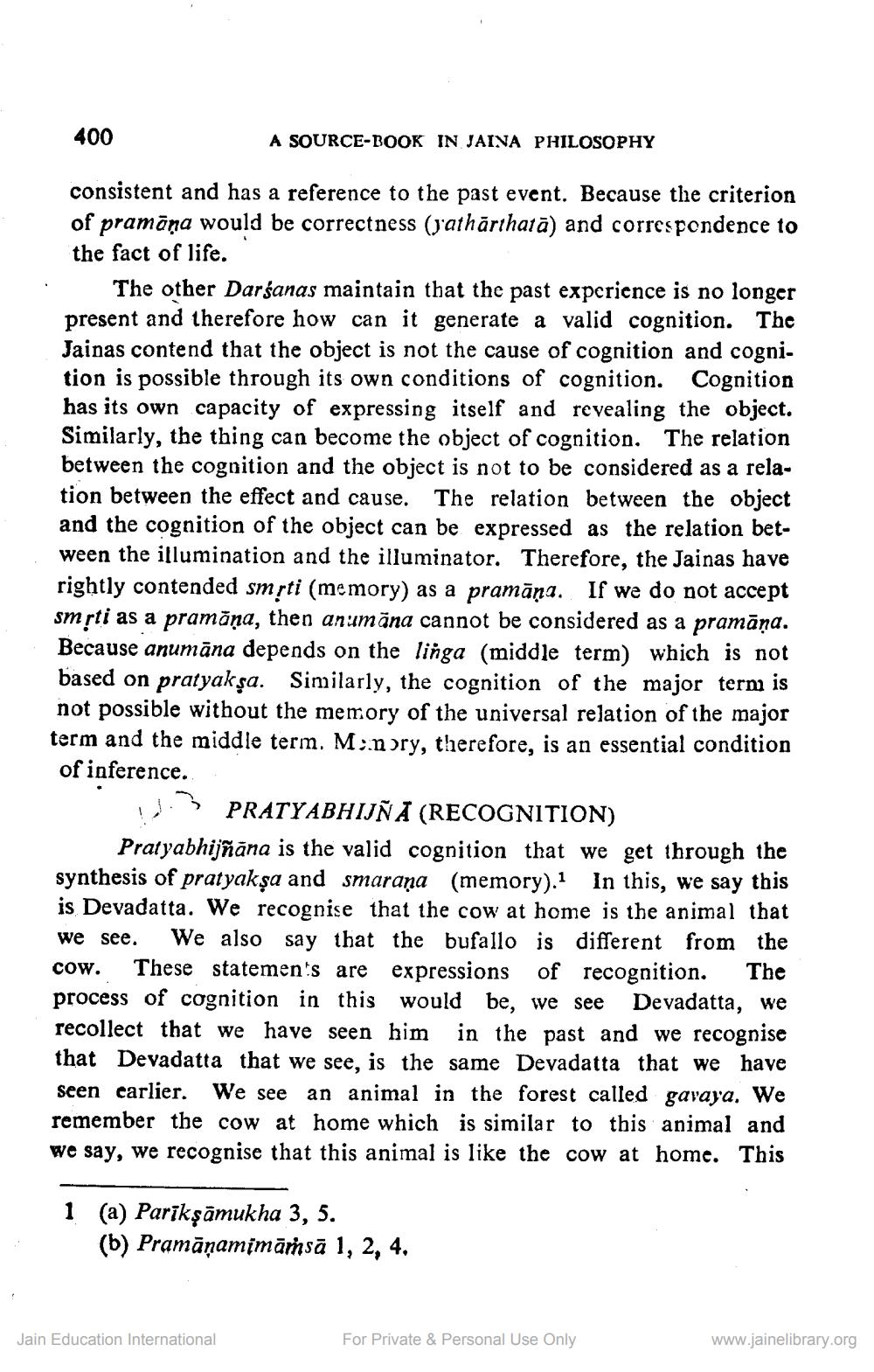________________
400
A SOURCE-BOOK IN JAINA PHILOSOPHY
consistent and has a reference to the past event. Because the criterion of pramāṇa would be correctness (pathārıhatā) and correspondence to the fact of life.
The other Daršanas maintain that the past experience is no longer present and therefore how can it generate a valid cognition. The Jainas contend that the object is not the cause of cognition and cogni. tion is possible through its own conditions of cognition. Cognition has its own capacity of expressing itself and revealing the object. Similarly, the thing can become the object of cognition. The relation between the cognition and the object is not to be considered as a relation between the effect and cause. The relation between the object and the cognition of the object can be expressed as the relation between the illumination and the illuminator. Therefore, the Jainas have rightly contended smrti (memory) as a pramāņı. If we do not accept smrti as a pramāņa, then anumāna cannot be considered as a pramāņa. Because anumāna depends on the linga (middle term) which is not based on pratyakşa. Similarly, the cognition of the major terni is not possible without the memory of the universal relation of the major term and the middle term. M:nory, therefore, is an essential condition of inference.
V.3 PRATYABHIJÑA (RECOGNITION)
Pratyabhijñāna is the valid cognition that we get through the synthesis of pratyakşa and smarana (memory). In this, we say this is Devadatta. We recognise that the cow at home is the animal that we see. We also say that the bufallo is different from the cow. These statements are expressions of recognition. The process of cognition in this would be, we see Devadatta, we recollect that we have seen him in the past and we recognise that Devadatta that we see, is the same Devadatta that we have seen earlier. We see an animal in the forest called gavaya. We remember the cow at home which is similar to this animal and we say, we recognise that this animal is like the cow at home. This
1 (a) Parikşāmukha 3, 5.
(b) Pramāņamimārsā 1, 2, 4,
Jain Education International
For Private & Personal Use Only
www.jainelibrary.org




